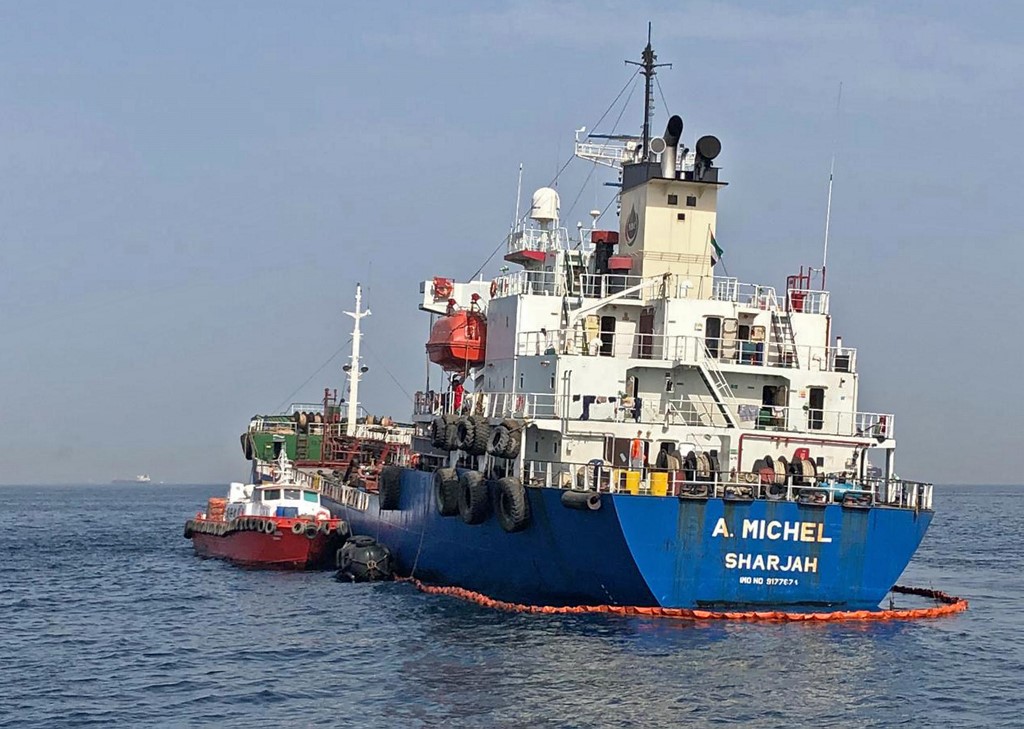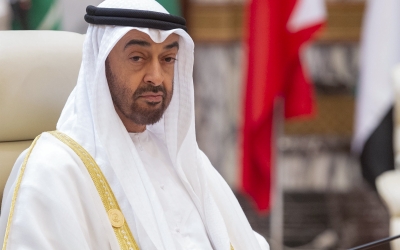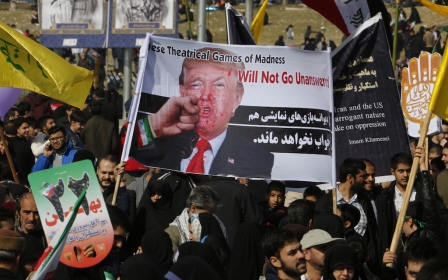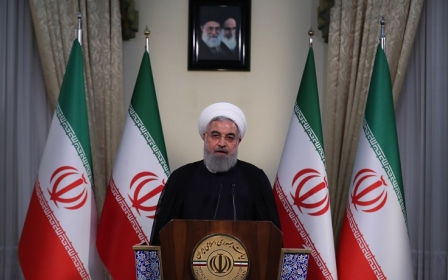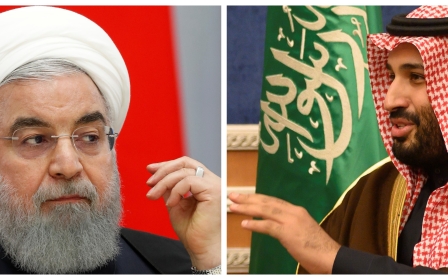Gulf of Oman attacks: Only those who want escalation will benefit
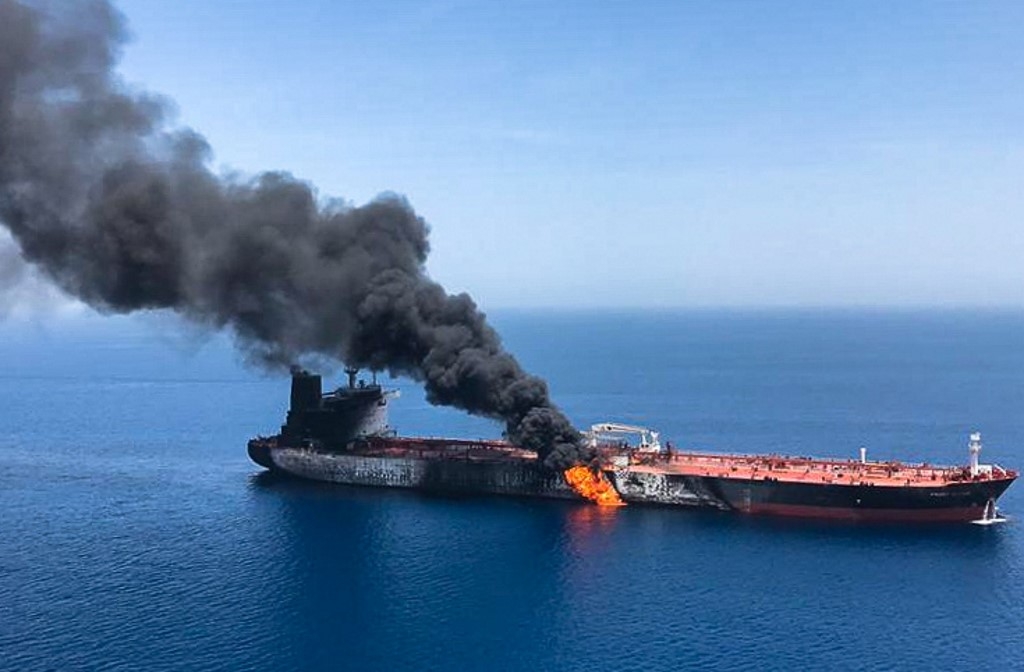
On Thursday morning, images showing columns of smoke over the Gulf of Oman started to appear on Iran’s IRIB news agency’s social media feed, alongside reports that two supertankers, the Front Altair and the Kokuka Courageous, were hit by explosions just east of the Strait of Hormuz – the world’s most important maritime chokepoint for oil and gas trade.
The incident in the Gulf of Oman comes a month after an attack on four vessels anchored off the coast of the UAE’s Fujairah port – an attack that the Emiratis and Saudis stopped just short of attributing to their regional rival, Iran.
Ever since, a range of diplomatic initiatives led by Qatar, Japan and Oman have aimed to de-escalate tensions. Thursday’s incident was evidently committed by a spoiler not interested in mediation and de-escalation, but in confrontation.
‘Maximum pressure’ policy
A key protagonist in this context of heightened tensions between Iran and its Gulf neighbours has been the Trump administration, whose policy of “maximum pressure” on Tehran aims to extract further concessions from the Islamic Republic with regards to its nuclear enrichment programme.
New MEE newsletter: Jerusalem Dispatch
Sign up to get the latest insights and analysis on Israel-Palestine, alongside Turkey Unpacked and other MEE newsletters
After a year of weaponised narratives directed by neo-conservative hawks in Washington, Abu Dhabi, Riyadh and Tel Aviv against Iran, Trump had hoped that the time was ripe to ask Tehran to return to the negotiating table. But as the revolutionary regime in Tehran had to show resolve after being humiliated by the US unilateral withdrawal from the nuclear deal and reimposition of painful sanctions, Trump’s “maximum pressure” policy never had any hope of success.
From a rational cui bono point of view, few would seem to benefit from a disruption of trade on these strategic waterways
Against this backdrop, many analysts are rushing to the conclusion that Iran’s Islamic Revolutionary Guard Corps (IRGC) was behind these attacks hitting the hydrocarbon lifeline of US allies in the Gulf.
Yet, any “evidence” that is openly available about both the attacks in Fujairah and the Gulf of Oman is inconclusive and highly politicised.
A Norwegian insurer blamed Iran for the attack on 12 May, knowing that framing the incident as force majeure would absolve it from paying out a claim. Trump’s National Security Adviser John Bolton, who has been on a personal crusade to take on Iran militarily for nearly two decades, said at the end of May that Tehran was “almost certainly” behind the 12 May attack. And an inquiry led by the anti-Iran hawks, the UAE and Saudi Arabia, stopped just short of blaming Tehran earlier this month.
Questions unanswered
No evidence that went into these inquiries on the 12 May incident has so far been disclosed, leaving many questions unanswered. Why would Iran attack different vessels scattered around a vast anchorage area in Emirati waters? Why is it that no nearby crews on other vessels heard, saw or reported anything?
Why couldn’t the Emirati navy and coast guard secure what for Abu Dhabi is critical infrastructure, and why were Abu Dhabi and Riyadh hesitant to blame Iran directly?
From a rational cui bono point of view, few would seem to benefit from a disruption of trade on these strategic waterways. While the UAE and Saudi Arabia have long lobbied for Washington to take a more antagonistic stance on Iran, neither Abu Dhabi nor Riyadh would be able to protect themselves against the barrages of ballistic missiles Iran could send across the Gulf.
In addition, with insurance premiums going up across the Gulf, any instability would be bad for business.
The Trump administration, while able to exploit the current crisis to push extensive arms packages to Gulf partners through Congress, is ill-prepared for a war with Tehran. And despite preparing for a military confrontation with the US for decades, Iran’s government knows that such a war could break a regime already on its knees.
Nonetheless, ideological spoilers on the fringes of rational decision-making may still believe that military escalation is not just inevitable, but potentially limited in nature.
Iran’s deep state
On one side of the divide, ideological anti-Iran hawks such as Bolton and US Secretary of State Mike Pompeo are leading a crusade against Iran as the “anti-Christ” to the US-led status quo in the region – a crusade that the crown princes of Saudi Arabia and Abu Dhabi have endorsed, alongside Israel. Some in Washington and the Gulf have suggested these crusaders might go so far as to stage a false flag to create a pretext for striking Iran.
On the other side of the divide is Iran’s deep state, the massive IRGC networks that operate independently of the government in Tehran, which seems sincere about avoiding escalation. Reporting directly to the supreme leader, the IRGC has both the capability and the intent to harm a demonised US where it hurts.
The Revolutionary Guards control extensive surrogate networks across the region that can strike unconventionally in the air, land and sea domains, always maintaining a degree of plausible deniability. A scenario where the IRGC’s speedboats approach tankers to attach magnetic explosive devices is plausible.
Hence, while a clear casus belli has not been established, efforts to open backchannels for de-escalation have already come under fire.
For the ideologues in Washington, Riyadh, Abu Dhabi, Tel Aviv and Tehran, a limited military escalation not only supports their antagonistic narratives, but gives legitimacy to their very raison d’etre – all while risking setting the entire region aflame.
The views expressed in this article belong to the author and do not necessarily reflect the editorial policy of Middle East Eye.
Middle East Eye delivers independent and unrivalled coverage and analysis of the Middle East, North Africa and beyond. To learn more about republishing this content and the associated fees, please fill out this form. More about MEE can be found here.



